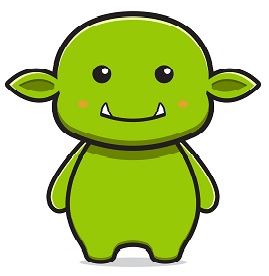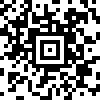I do. The is “el/la” and a is “un/una”.
In my dad’s language and my second language, it’s “the” and “a”
No (Lithuanian)
No. (Finnish). I remember watching english speaking social media influencers Dave Cad (UK) and Chachi Gonzales (USA) who both moved to Finland saying that their english have gone worse through the years because they have begun to drop ”the” and ”a/an” in conversations just like many Finns do when they speak english.
o, a, os, as for “the”
um, uma, uns, umas for “a”
both lists mean: singular masculine, singular feminine, plural masculine, plural feminine.
and if the gender is unknown or mixed you use the masculine
Portuguese, we do and we use it in everything. Even something simple like “for my Father” most of us say “for the my Father”.
“Sou filho do meu pai”
Translating literally becomes:
“am son of the my Father”
Estou a aprender o português!!
That’s not true for all Portuguese speakers. Most brazilian northeasterners don’t use it as you described, as it’s unnecessary.
Edit: The way I would say the sentences above:
“Pra meu pai”
“Sou filho de meu pai”
People have covered German and French. Esperanto has the genderless “la” for “the”; there is no “a” article. “Here is a house” is “Ĉi tie estas domo,” or “Jen estas domo,” or even simply “Estas domo” depending on what you mean. But there’s no article.
In German we have three genders for words, neutral, female and male. These are spread around pretty randomly:
Die Tür / The Door is female Das Auto /The Car is neutral Der Bus /The Bus is male
We also have ‘ein’ which is the equivalent of “a” in english. Ein Auto / A Car.
The difference is the same as in german, one is specific, the other more general.
Yes.
English.
I’ve heard of that one. I think the is “the” and a is “a”.
I believe that “a” is either “a” or “an”; it depends.
Also sometimes “an”.
Truly a terrible language.
Yes. In danish either “en” or “et” goes in front of nouns like this: “en kat” and “et hus”. This is equal to “a cat” and “a house”.
If it’s in specific, it goes at the end of the word instead like this: “katten” and “huset”. This is equal to “the cat” and “the house”.
Funny story. I know an old Chinese man who has a stutter. When he starts a sentence he often repeats the the the the the before he gets going. It sounds like removed removed removed. So far no one has confronted him but I always worry it will happen some day.
A very bad word that we’re not even supposed to say on the internet, believe it or not.
It got removed, what does it say? Can you s p a c e i t o u t?
Oh nooo 😭
russian, nope!

Si exista en Español y inglés, son artículos definidos ( el, la, los, las ) y artículos indefinidos ( un, una, unos, unas )
Yes, they exist in Spanish and English, as indefinite articles ( a, an ) and definite articles, which English has one ( the )
Japanese does not to my knowledge have any articles, これは何 could mean what is this or what are these. りんご could be one or more apples.
idk
In german we have der/die/das for the and ein/eine for a.
Don’t tell them about the noun cases though
And also completely unhinged declensions for them… Really, WTF Germany? 😭
No (Korean), and it is what Korean people including myself often have trouble with.
Mandarin:
No “the,” you just say the noun and that’s it.
“A” or any other quantity of a noun is generalized as a number, followed by a character indicating quantity, followed by the noun. “An apple” is 一个苹果 (yi ge ping guo), 一 literally means one, 个 is the character that denotes quantity (it’s the most common one but some nouns have different quantity adjectives), 苹果 is apple. Two is an exception because there’s a special character for it that’s different from the number two (两个苹果 as opposed to 二个苹果), but every other number quantity is the same as the number itself.
I like Chinese as a language

















